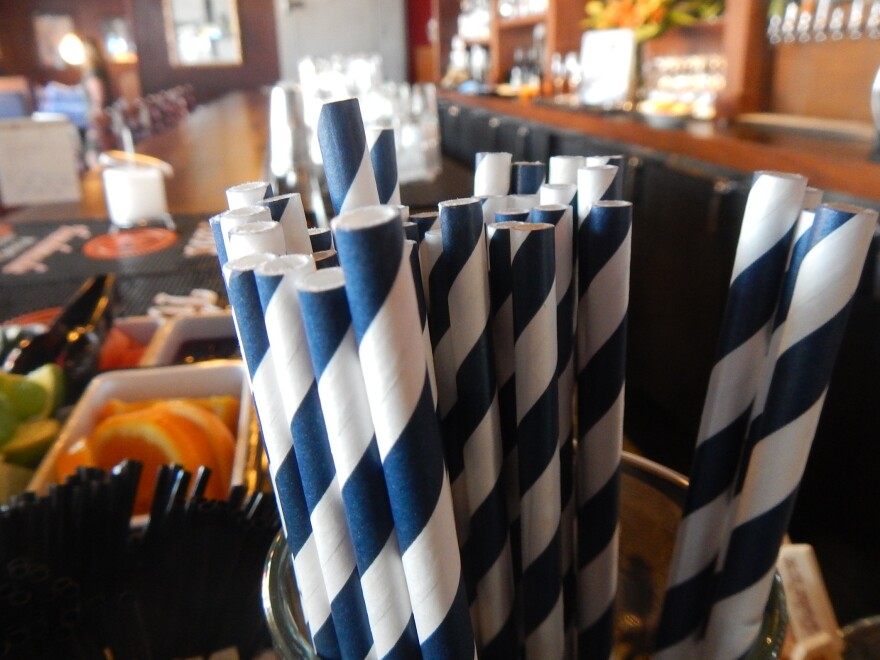There’s a rising tide of concern over the plastic junk flowing into the world’s oceans. So starting July 1, restaurants and bars in Seattle won’t be allowed to give out plastic straws.
City officials say Seattle is the first major city to ban plastic straws. Other cities, including New York and San Francisco, are considering similar bans.
The world throws away more than a billion pounds of plastic every day. Straws make up a very small fraction of that, but they’ve become a sort of plastic lightning rod.
Seattle officials say it’s impossible to recycle plastic straws — they’re so small, they fall through the cracks and wind up on the floor at recycling plants.
With Seattle’s new rules, restaurants can’t just hand out straws any more — customers have to ask for them. And those straws have to be compostable: made from paper or a plant-based plastic. The same goes for disposable spoons and forks.
But there’s a kink in the straw-ban narrative. Those compostable plastic straws don’t degrade in the ocean.
They stick around for years and can harm the turtles or birds or whales that try to eat them — just like the petroleum-based straws that Seattle has banned.
Advocates encourage people to choose paper straws over the compostable plastic. Paper ones can dissolve in the ocean in a matter of hours.
Still, chopping down trees to make paper straws has environmental impacts, as does growing and processing corn to make compostable-plastic ones, or drilling and transporting oil to make a standard plastic straw.
“Our favorite alternative to the plastic straw is no straw," said Dune Ives, who is behind the “Strawless in Seattle” campaign.
"The straw has been around for a long time. The plastic straw has only been around for a few decades, and so prior to the plastic straw, it was a paper straw or — kind of a shocker — it was no straw," Ives said.
At his family’s shop in Seattle’s University District, John Noh is whipping up a drink for a customer at Wow Bubble Tea. Sitting at the bottom of the cup are boba – little bubbles of tapioca. It takes a fat, oversized straw to suck them up.
“Paper straws are too fragile and if left too long in the drink, we found that it tends to kind of like melt and shrivel up. So we decided to go with the corn-based plastic. It’s compostable,” Noh said. “They work perfectly fine for now, at least in the cold teas.”
Noh said the compostable straws and cups cost more, but his family hasn’t decided whether to pass along the extra 10 or 15 cent cost to customers.
Seattle first banned plastic straws and Styrofoam packaging a decade ago, but it kept delaying the ban on straws until alternative products became widely available.
Midway through her mango-guava bubble tea, customer Simone Kantola said she wouldn’t mind paying a little more for her frozen treat if it helps the planet.
“There is just such an overflow of plastic, and it's getting into the oceans, especially, like huge islands of floating trash and plastic in the ocean. And it just sticks around for almost forever,” Kantola said.
The Plastics Industry Association in Washington, D.C., did not respond to interview requests.
But one of the world’s biggest straw-makers, Switzerland-based TetraPak, said it is trying to develop little paper straws to go along with its juice boxes. TetraPak said its long-term ambition is to make all of its packaging out of plants, not petroleum or metals.
Additional reporting by John O’Brien


